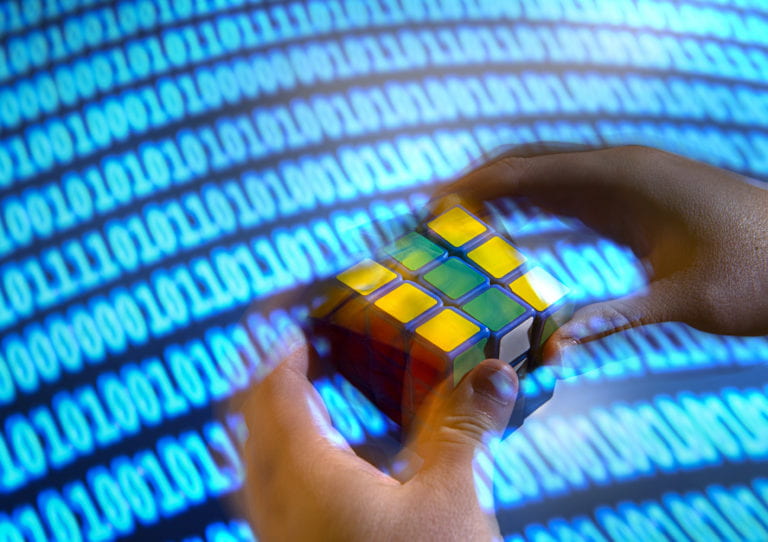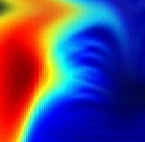Professor Pierre Baldi has published a new text that bridges the gap between deep learning and the natural sciences. Titled Deep Learning in Science (Cambridge University Press, 2021), the text provides readers with a perspective that there is “a principled, foundational approach to machine learning” and readers “are made aware of the many interesting applications in natural sciences as opposed to just in engineering and commerce” (quoting Professor Baldi).
News
Rina Dechter Receives AI Journal’s Classic Paper Award
StandardDistinguished Prof. Rina Dechter has been awarded the 2020 Classic Paper Award from the Artificial Intelligence Journal. Given to papers “published at least 15 calendar years ago in the AI Journal that are exceptional in their significance and impact,” this year’s award recognized “Temporal Constraint Networks,” which Dechter co-authored with Itay Meiri and Judea Pearl in 1991.
Read more: https://www.ics.uci.edu/community/news/view_news?id=1866
Sameer Singh Wins Best Paper Award at ACL 2020
StandardWhile researchers know that contemporary natural language processing models aren’t as accurate as their leaderboard performance makes them appear, there hasn’t been a structured way to test them. The best paper award at ACL 2020 went to Prof. Sameer Singh, and collaborators Marco Tulio Ribeiro of Microsoft Research and Tongshuang Wu and Carlos Guestrin at the University of Washington, for their paper Beyond Accuracy: Behavioral Testing of NLP Models with CheckList. Their CheckList framework uses a matrix of general linguistic capabilities and test types to reveal weaknesses in state-of-the-art cloud AI systems.
Read more: https://www.ics.uci.edu/community/news/view_news?id=1817
UCI and Disney Research scientists develop AI-enhanced video compression model
Standard
A new artificial intelligence-enhanced video compression model developed by computer scientists at the University of California, Irvine and Disney Research has demonstrated that deep learning can compete against established video compression technology.
Unveiling their work in December at the Conference on Neural Information Processing Systems in Vancouver, British Columbia, the UCI/Disney Research team members showed that their compressor – while still in an early phase – yielded less distortion and significantly smaller bits-per-pixel rates than classical coding-decoding algorithms such as H.265 when trained on specialized video content and achieved comparable results on downscaled, publicly available YouTube videos.
Read more: https://www.ics.uci.edu/community/news/view_news?id=1714
Upgrading the UCI ML Repository
StandardThe UCI Machine Learning Repository has been a tremendous resource for empirical and methodological research in machine learning for decades. Yet with the growing number of machine learning (ML) research papers, algorithms and datasets, it is becoming increasingly difficult to track the latest performance numbers for a particular dataset, identify suitable datasets for a given task, or replicate the results of an algorithm run on a particular dataset. To address this issue, CML Professors Sameer Singh and Padhraic Smyth along with Philip Papadopoulos, Director of UCI’s Research Cyberinfrastructure Center (RCIC), have planned a “next-generation” upgrade. The trio was recently awarded $1.8 million for their NSF grant, “Machine Learning Democratization via a Linked, Annotated Repository of Datasets.”
AI/NLP Research Partnership with Allen Institute for AI (AI2)
Image
Professor Sameer Singh and his group have developed a thriving partnership working with researcher Dr. Matt Gardner and colleagues from the Allen Institute for AI (AI2), producing a series of high-profile papers in the past several months on topics such as language modeling and automated question answering systems. AI2 is providing funding to support graduate student researchers who work closely with AI2 researchers co-located in the Computer Science Department in Donald Bren Hall.
Research funding from Qualcomm AI/ML Research Labs
StandardQualcomm Inc. has provided gift funding of $255,000 to Computer Science Professors Charless Fowlkes, Stephan Mandt and Padhraic Smyth. This funding will support Ph.D. students involved in basic research projects across the three groups on topics related to the development of new theories and algorithms in the areas of computer vision and machine learning.
The funded projects will involve collaborations with Qualcomm’s rapidly expanding research and development work in artificial intelligence, with a particular focus on Qualcomm AI/ML research labs in San Diego and Amsterdam.
UCI group develops deep learning approach for Rubik’s cube
Image
Professor Pierre Baldi, with PhD students Forest Agostinelli and Stephen McAleer, and senior Alexander Shmakov, have developed a deep reinforcement learning approach to solve Rubik’s cube problems, solving typical problems in about 20 moves. The work was published in Nature Machine Intelligence.
Faculty Positions at UC Irvine
StandardFaculty Positions at UC Irvine
Application deadline: Jan 15th, 2019 (Applications received by January 1, 2019 will receive fullest consideration.)
Apply online at: https://recruit.ap.uci.edu/apply/JPF04950
The Department of Computer Science in the Donald Bren School of Information and Computer Sciences (ICS) at the University of California, Irvine (UCI) invites applications for multiple tenure-track assistant professor or tenured associate/full professor positions beginning July 1, 2019. The Department is interested in individuals with research interests in all aspects of algorithms, artificial intelligence, machine learning, and theory of computing. One opening is targeted at individuals whose computer science expertise aligns with the growing UCI Data Science Initiative.
Two new NSF awards in Machine Learning for Sameer Singh
Standard Congratulations to Professor Sameer Singh for receiving two multi-year research awards from the National Science Foundation (NSF). Under the first grant, Sameer and his research team will develop new algorithms to better explain why classifiers make certain decisions, increasing user trust in such models. The second grant focuses on the development of new approached for extracting multimodal information from documents, such as text, images, numbers, and databases, with the goal of automatically creating new knowledge bases from relatively unstructured written documents.
Congratulations to Professor Sameer Singh for receiving two multi-year research awards from the National Science Foundation (NSF). Under the first grant, Sameer and his research team will develop new algorithms to better explain why classifiers make certain decisions, increasing user trust in such models. The second grant focuses on the development of new approached for extracting multimodal information from documents, such as text, images, numbers, and databases, with the goal of automatically creating new knowledge bases from relatively unstructured written documents.
